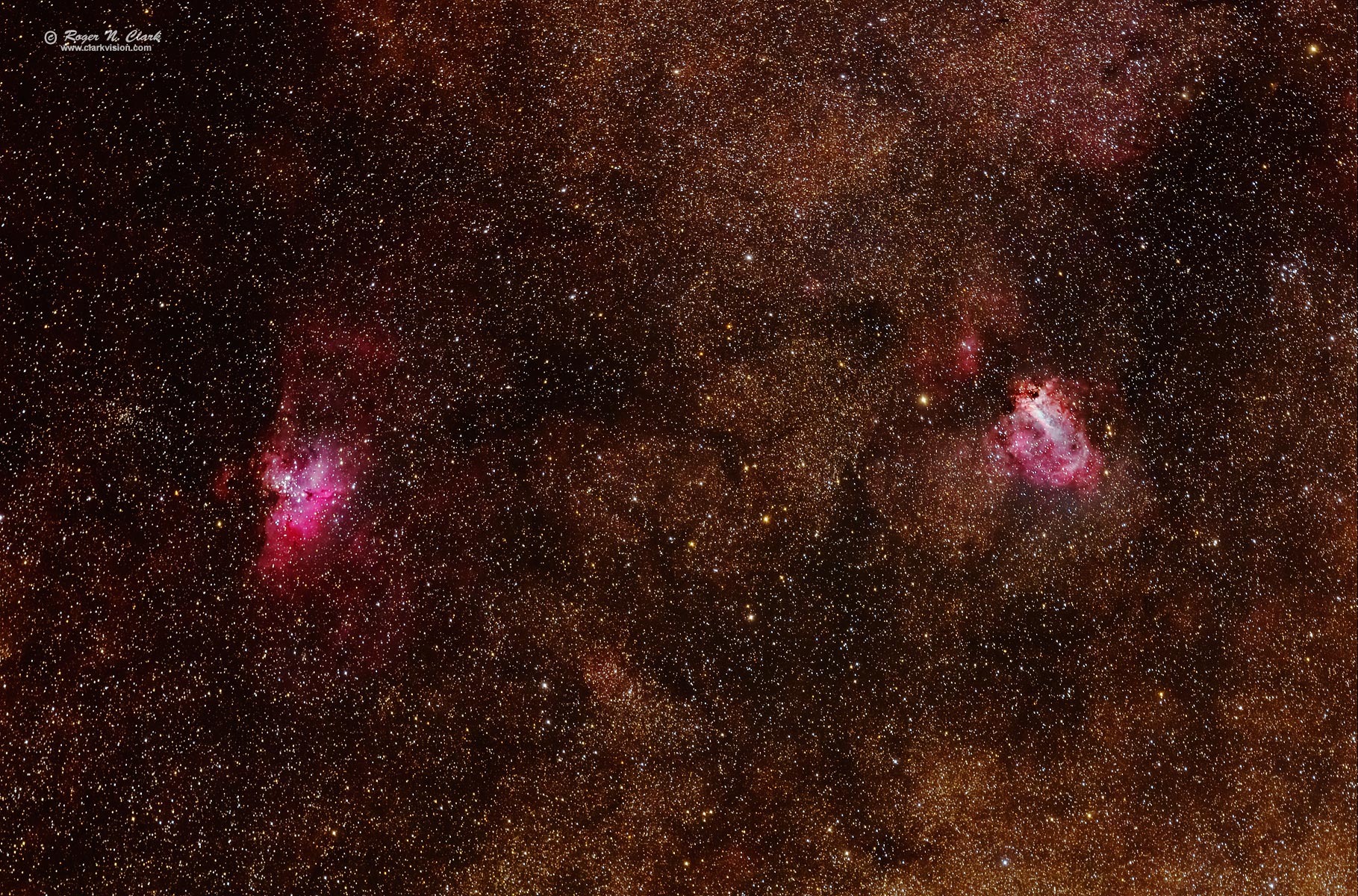| Home | Galleries | Articles | Reviews | Best Gear | New | About | Contact | Gallery Index | Previous |
Next |

| Home | Galleries | Articles | Reviews | Best Gear | New | About | Contact | Gallery Index | Previous |
Next |

Messier 16 (M16) (left), the Eagle Nebula in Serpens, and Messier 17 (M17) (right), the Omega Nebula in Sagittarius, are two bright nebulae visible in small telescopes providing great views in small telescopes in the summer for norther hemisphere observers. M16 contains the "Pillars of Creation" made famous by Hubble telescope images. They are seen here as the small dark lanes in the center of the nebula. North is to the left.
Technical. This image was obtained with a Canon 7D Mark II 20-megapixel digital camera and 300 mm f/2.8 L IS II lens at f/2.8 and ISO 1600. No dark frame subtraction, no flat fields. Tracking with an Astrotrac and no guiding. The 41 minutes total exposure (41 1-minute exposures). Stars to magnitude 18 were recorded.
The Exposure Factors, CEF, CEFA are measures of the relative amounts of light received from a subject. It can be used to fairly compare wildly different lens/telescope apertures and exposure times. For this image:
Modern DSLRs like the 7D Mark II include on sensor dark current suppression and low fixed pattern noise at ISOs around 1600 and higher, making no need for dark frame subtraction. Modern raw converters correct for light fall-off and also correct for hot/dead/stuck pixels. This makes processing low light images easy: simply align and average.
To learn how to obtain stunning images like this, please visit my Extensive Articles on Photography .
See my review of the Canon 7D Mark II and why it is so good for astrophotography: Canon 7D Mark II sensor analysis.
Keywords to this image = astrophoto-1 nebula Messier low-light digital_astro canon_7d2
Image ID: m16+m17.c08.12.2015.0J6A5296-336tr2-41min.d-1200v.jpg
| Home | Galleries | Articles | Reviews | Best Gear | Science | New | About | Contact |
Last updated November 03, 2025